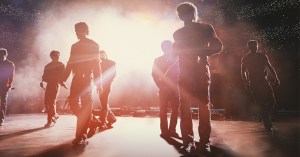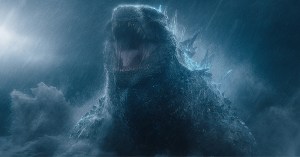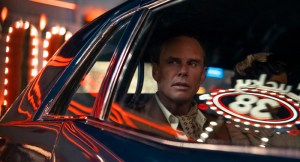What’s Next For DC Entertainment Under Warner Bros. Discovery?
Is a DCEU reboot in the works? What about outliers like Joker and The Batman? Will the Arrowverse continue? We break it all down.
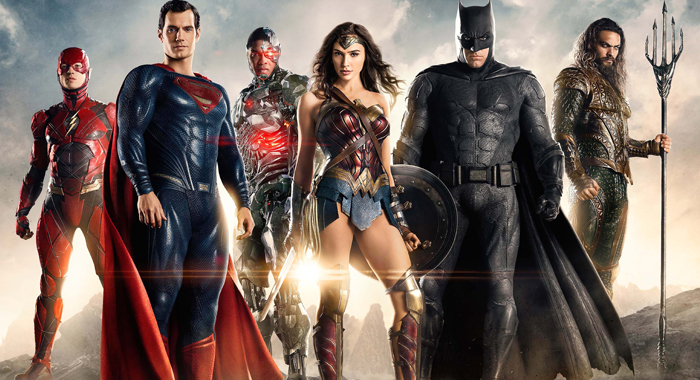
(Photo by Clay Enos/©Warner Bros. Pictures)
With the closure of the WarnerMedia and Discovery Networks merger last week – and a number of senior WarnerMedia executives departing – many are speculating on what will happen with the new Warner Bros. Discovery, and, naturally enough, some of that guesswork centers on DC Entertainment. Variety reports plans are already underway to consolidate that aspect of the company into something more akin to Marvel Studios, with a singular creative force steering its film and television productions, and to renew its focus on gaming. We also imagine there might be more scrutiny on DC Comics itself as an intellectual property-generating engine.
Of course, our focus is the film and television aspects of the proposed change. Since Warner Bros. Pictures released Superman in 1978, the notion of a cohesive film universe was the one of the last priorities for the studio – just look at the various cuts of Superman II to see how little continuity mattered within just one film. Add to that the various cycles of Batman films, the start-and-stop nature of the so-called DC Extended Universe, and outliers like Joker and The Batman tossing the whole notion of a Marvel-style cohesion out the window to another reality in the Multiverse. And, as Marvel has proven, a cohesive film-to-film narrative leads to a stronger brand.
The haphazardness of the DC film universe underscores the way DC Entertainment itself is operated – it is, to some extent, an IP holding company for Warner Bros. Pictures and Warner Bros. Television, with individual production companies or directors seemingly having more say than a creative executive operating on the behalf of DC Entertainment. It is a huge difference from Marvel Studios, where Kevin Feige is the ultimate creative authority across its film and TV projects and paces out the ongoing storylines between both. Most studios would love to have a Feige on staff to maintain their key properties, and despite attempts to bring someone on in that capacity, it has never quite worked out for DC.
But what if it did?
As Variety points out, a Feige-like executive may not appear until 2023, after current DC Films president Walter Hamada’s contract expires, so let’s look into a possible future, a few years from now, where a single vision directs DC Entertainment.
Zero Hour For The Arrowverse
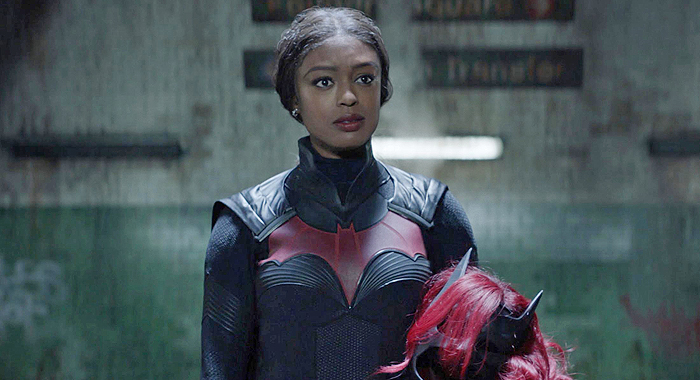
(Photo by ©The CW)
First, we have to start with some housekeeping. The most established and coherent DC Entertainment universe, the Arrowverse on The CW, will likely wind down in the next few years as Warner Bros. Discovery and Paramount are both looking to sell the network to focus on their own streaming platforms. When The CW’s new owner emerges, we doubt they will be as interested in licensing out superhero fare from Warner Bros. Television. Additionally, we doubt our theoretical DC Entertainment creative executive would want those properties to remain outside the Warner ecosystem.
Currently, the Arrowverse consists of four shows: The Flash, DC’s Legends of Tomorrow, Batwoman, and Superman & Lois. Two more DC superhero shows, Naomi and Stargirl, stand outside of the Arroweverse and of the six, only The Flash and Superman & Lois have been renewed for the 2022-2023 broadcast season. Decisions on the rest will likely be made in May and, at least in theory, The CW may find it advantageous to renew all the shows as a good-faith choice in light of new ownership. But by 2024, the new owners and the possible new DC leadership will want the shows to end their runs on The CW.
It is easy to think of them ending in one last crossover event, which we’ll call “Zero Hour” in honor of the 1990s DC Comics sequel to Crisis on Infinite Earths, but it is also possible to think Superman & Lois and (potentially) Naomi could survive the end to find a new home – and universe – over on HBO Max. Both are still young programs produced by entities Warners enjoys being in business with: Berlanti Productions and Ava DuVernay’s Array. Of course, portions of that universe already exist and will no doubt be refined in the next few years.
The New DC Universe In Theaters And At HBO Max
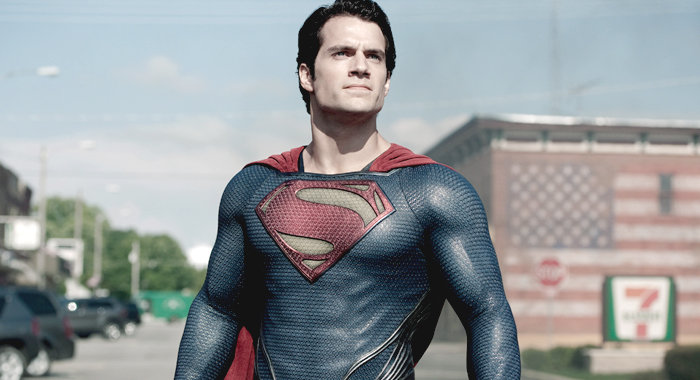
(Photo by Clay Enos/©Warner Bros. Pictures)
Despite numerous DC-related films in development — including a third Wonder Woman movie — the confirmed film calendar ends with Blue Beetle’s release on August 18, 2023. After that, DC’s film future returns to the uncertainty of previous decades, though it is possible the apparent halt on DC productions was in anticipation of Discovery executives taking control and choosing a different way forward.
Referring back to the Variety article, the desire here is for greater cohesion with DC Entertainment as a “solidified content vertical” to rival Marvel. In order to do so, a new DC Universe will likely emerge. Another desire on Discovery’s part is for Superman to return to features, so it is possible the character will spearhead the new reality, much as he opened up the DCEU with Man of Steel. After that, it is not hard to image characters like The Flash (Ezra Miller) and Wonder Woman (Gal Gadot) will be recast at that time to emphasize this new shared film reality as a DC version of the Marvel Cinematic Universe.
But considering DC Comics is famous for its imperfect reboots – shout-out to the Legion of Superheroes fans! – it is also possible the films following a potential Superman return will employ the previous actors and just ask the viewers to ignore their previous adventures. There is precedent for such a thing working: no one ever really questioned why Judi Dench was still playing M when the 007 series started over.
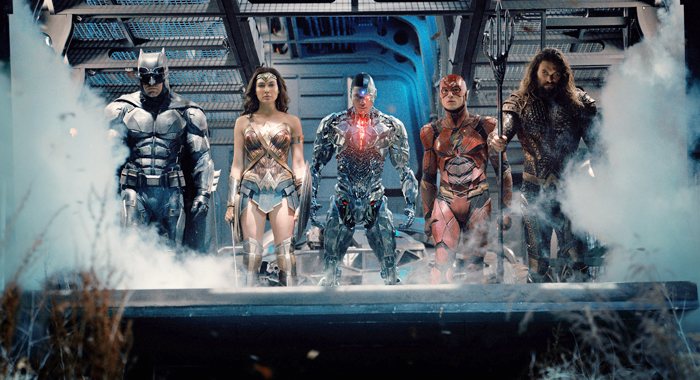
(Photo by Clay Enos/©Warner Bros.)
No matter the cast changes, though, expect to see a Marvel-style film release calendar from the newly strengthened DC Entertainment sometime in 2023. Also expect, at the very least, a Superman, Batman, Wonder Woman, and Aquaman film to be on that calendar with, maybe, a Blue Beetle 2 on the board (if that film performs well) and a second Justice League as Warner Bros. — no matter who owns it — will always chase that Avengers worldwide box office success.
One question the change in direction leads to is the fate of Batgirl and DC Entertainment’s plan to produce two features a year for the streaming service. Batgirl is in production now, so fans of Barbara Gordon (Leslie Grace) will see her in the Year One outfit sometime next year. The service has one other film in the works with The Wonder Twins, which recently cast KJ Apa and Isabel May in the title roles. After that, though, we expect that desire for cohesion will make features purely a theatrical game again and HBO Max the home to television programs connected to the new slate of films – a la the Marvel method over on Disney+.
As it happens, Berlanti Productions will likely be part of this effort with a Green Lantern series so long in development, it survived the entire AT&T misadventure. There is definitely wiggle room to establish a Green Lantern in that series who will, in turn, be more of a character for the feature films. It is also easy to think the Justice League Dark strand of programs in development at J.J. Abrams’ Bad Robot can be easily altered to fit the new, coherent DC live-action universe. Whether or not that means the next Superman will meet a young John Constantine is anyone’s guess, though. As Peacemaker proved, there is a will at HBO Max to bring in the top-line heroes for just one scene.
This grand and seemingly coherent plan still has a few kinks in it, though. The Batman, for example, is meant to start its own little universe with a series based on the Penguin (Colin Farrell) already ordered and another based around Arkham Asylum in development. But this apparent discontinuity is also accounted for in Warner Bros. Discovery’s DC wishlist.
A Black Label Brand
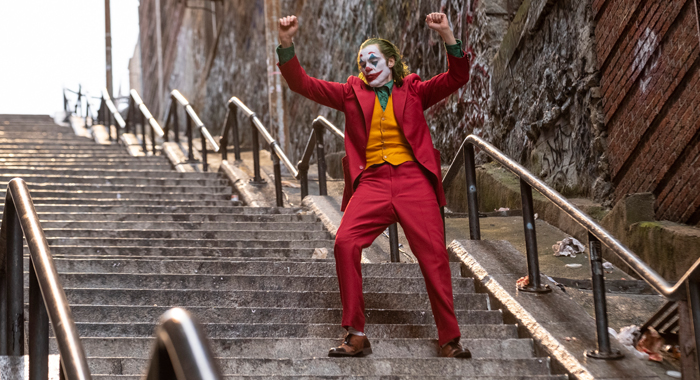
(Photo by Niko Tavernise/© 2019 Warner Bros. Entertainment Inc.)
Reportedly, the new Warner leadership also wants DC Entertainment to continue making movies like Joker. The film – unmoored from the DCEU and The Batman – performed great at the box office and represents a market the new corporate owners are unlikely to shy away from even as they want Marvel-esque coherence in their DC film and TV offerings. In fact, the demand for more movies like Joker is couched in a desire for less beloved DC characters to become billion dollar franchises. But to reach that goal, DC will need to offer filmmakers greater creative freedom than a shared universe allows.
Luckily, DC Comics already has a way to differentiate between in-continuity stories and wilder, often more mature themed takes on its classic characters. The DC Black Label began in 2018 with Batman: Damned and promised to offer a way for top creators to tell stories of the DC heroes (and villains) without any expectation of fitting into an established history or reality. Of course, DC Comics has always had some version of this, starting with the “imaginary stories” in the pages of various Superman comics in the 1950s and 60s. The value in “DC Black Label” is the strong branding and a clear-cut way it can tell potential readers (or viewers, should Warner Bros. Discovery ever adopt the concept) what to expect.
In such a line of movies, there are opportunities to tell stories in which Kal-El was raised by the Waynes instead of the Kents, a really gritty take on the 1980s Hawkworld comic, or something completely new just because, say, James Gunn wants to take Swamp Thing in a new direction.
Of course, it is always possible out-of-universe stories like Joker could fall by the wayside as DC Entertainment finally focuses on the things necessary for a coherent film universe. Also, a continued relationship with Gunn could leads to a character like Anima becoming extremely profitable and popular while also existing in the shared universe. In fact, our hypothetical DC Entertainment creative executive would have to make keeping Gunn around a key priority.
A “Be The Batman” Reality Series
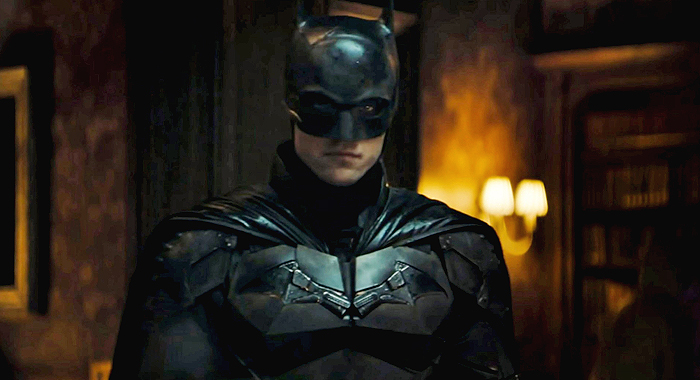
(Photo by ©Warner Bros.)
Finally, let’s go into some wild speculation. A lot of executives from Discovery’s reality-based channels are taking high posts at the newly merged company and while it might seem unthinkable, news of a James Bond-branded reality show on Prime Video makes a similar show with a Batman theme inevitable.
We’ll call it “Be The Batman.” It pits contestants against each other in the grueling training regimens Batman inflicts upon himself (and his Robins) to learn who could — physically at least — be the Batman. Imagine the winner receiving a cash prize and a Batmobile to take home at the end of the season.
Although meant as a joke, “Be The Batman” represents one of the strange forks a newly-strengthened DC Entertainment could take once Warner Bros. Discovery expects it to be a major profit center. Indeed, all of our speculation centers on DC Entertainment finally being empowered to do its best to make money for the corporation and reality programming is as valid a way to do it as features, scripted live action television, and animation.
But it all depends on the company finding that Feige-like executive who can not only find winners in the DC Comics library, but orchestrate all these moving parts in a way that will finally give the DC Multiverse some semblance of cohesion. We hope they can pull it off.
Then again, Variety notes there is also the possibility that new DC leadership may not be a Feige-style creative, but someone who can manage the books and allow creative people like Berlanti and Gunn to more effectively (and synergistically) use the DC IP. It’s not as exciting an option as that single creative executive, but it may also be a way for DC Entertainment to finally be the powerhouse DC Comics readers know it to be.




